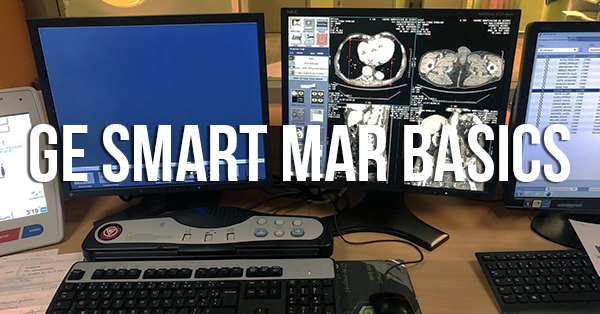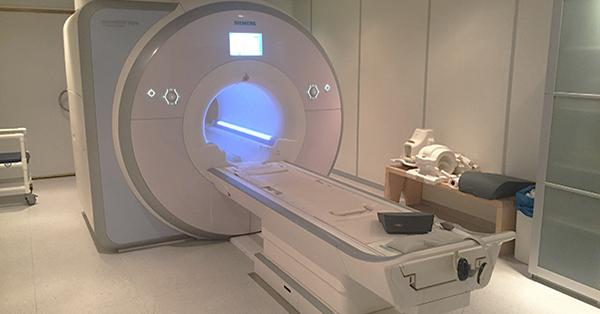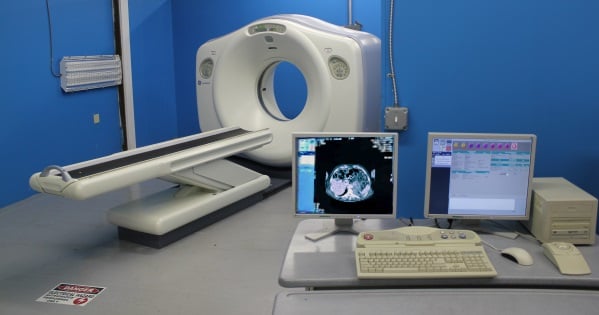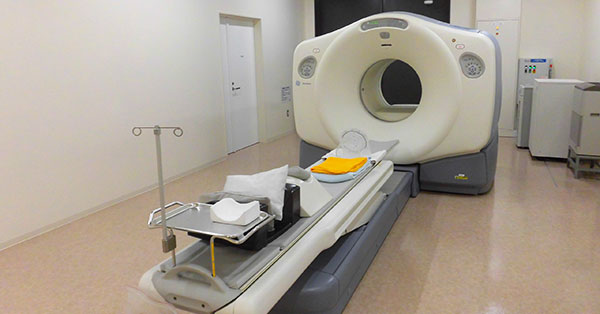
The innovation of new technologies is always exciting, especially when it can greatly improve the treatment of patients worldwide. One area of healthcare technology that seems to be in a constant state of innovative evolution is diagnostic CT imaging. CT is the flagship modality at many imaging facilities and every new feature that's introduced, from software, to configuration, to accessories, stands to make a massive difference across a worldwide install base. One such feature making a difference on recently-released GE CT scanners is Smart MAR (metal artifact reduction). Today, we'll share with you a brief overview of how MAR works and what it means for patient care.
CT Scanners and Metal
When performing CT scans, technicians can be challenged by image distortions in patients with metal implants, such as surgical screws, dental fillings, prosthetics, or artificial joints. These implants can create streaks and striations across the image that make appropriate diagnosis and treatment difficult for even the most skilled physicians. The streaks on the image can confuse the view of tumors, dark spots, or healthy tissue. This decreases the effectiveness of diagnosis. It also can create uncertainties in dose calculation.
The Solution: Smart MAR
Enter in Smart MAR (metal artifact reduction). MAR has revolutionized scans for patients with metal implants of any kind. MAR uses a 3-stage, projection-based process to, "reduce photon starvation, beam hardening, and streak artifacts caused by metal in the body.”1 This technology strives to improve the data at the projection point, instead of in the image itself.
Here's how GE describes the process 1:
Stage One: Corrupted samples in the projection that correspond to metallic objects are identified.
Stage Two: Inpainted data is generated by replacing the metal corrupted projections with the corrected data. The corrected data is generated using the forward projection of the classified image.
Stage Three: The final corrected projection is generated using a combination of the original projection data and the inpainted projection, revealing anatomic details hidden beneath the artifacts.
Benefits
The image quality alone is enough to make this a revolutionary advantage, but there are other benefits as well. The MAR scan allows patients to receive clear images in a single scan- no retakes to compensate for artifacts. This saves time each patient is in the scanner. Patients with anxiety or claustrophobia will benefit from shorter scans. This time reduction in turn reduces the dose of radiation each patient is exposed to, making for more dose-conscious scanning.
This development allows technicians and physicians to have a clear view of tissues, joints, and tumors in patients with metallic implants. This means more accurate and timely diagnosis and treatment for those patients.
The Takeaway
Smart MAR (and all of its alternatively-branded counterparts from other manufacturers) is a tool that will significantly change the experience of getting a CT scan for anyone with an implant and the doctors and techs that serve them. Unfortunately, it's a tool that is still in the early stages of proliferating into the existing CT install base.
If you're looking for Smart MAR be prepared to pay a premium for it. Smart MAR is only available on GE's newest CT products or as an upgrade to Discovery 750 HD or Optima 660 scanners. In a few years we expect to see more Smart MAR-enabled systems trickling onto the secondary market for purchase by imaging centers that need to be more budget-conscious.

Paul Crawford
Paul Crawford is the Vice President of Equipment Solutions at Block Imaging. Paul connects with healthcare facilities across the world to offer CT solutions and manages the wholesale sales team. When Paul is not helping customers with their CT needs, he enjoys spending time with his family, watching MSU sports, and CrossFit.






